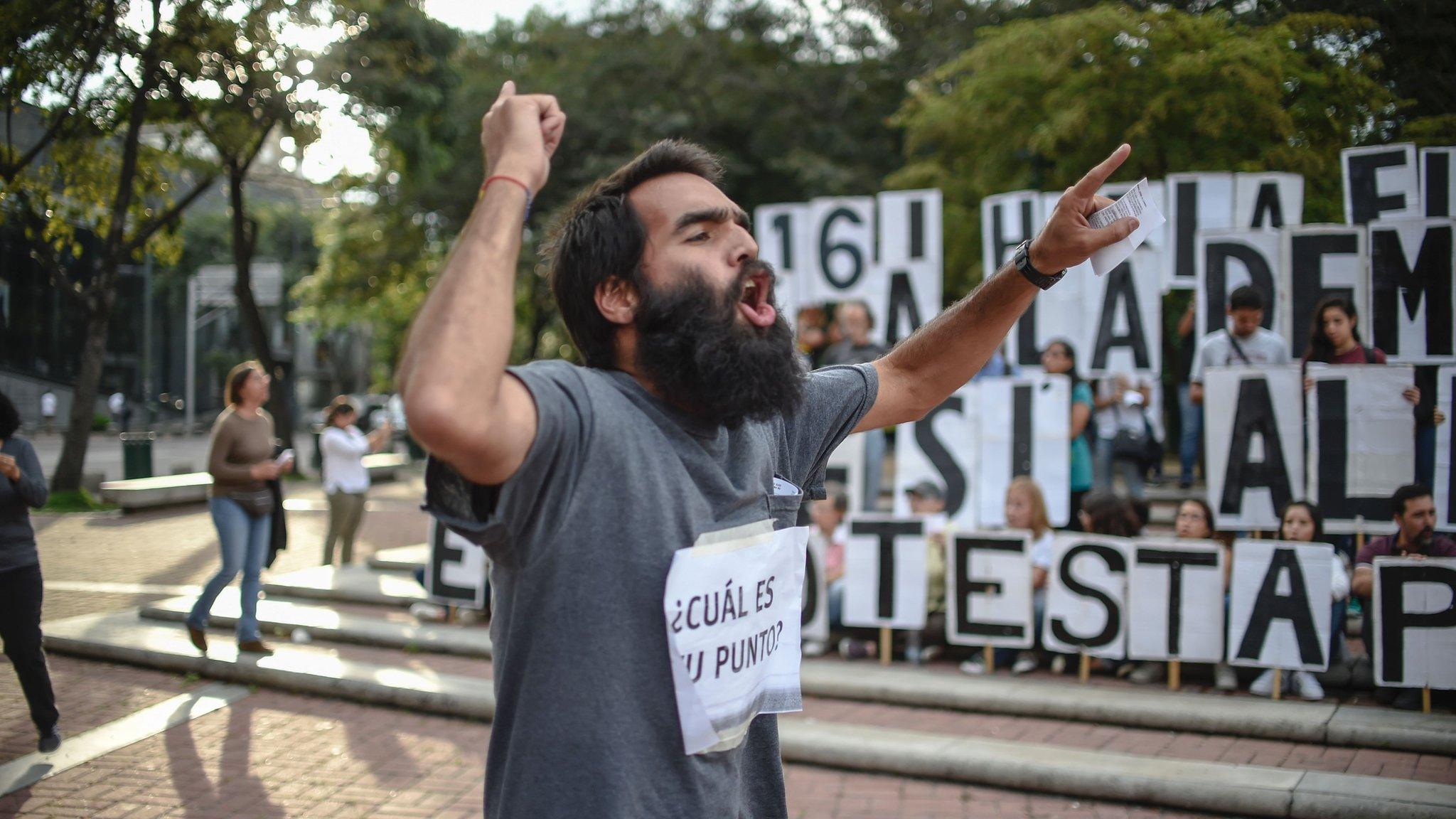Venezuela says US sanctions will lead to halt in oil exports
- Published
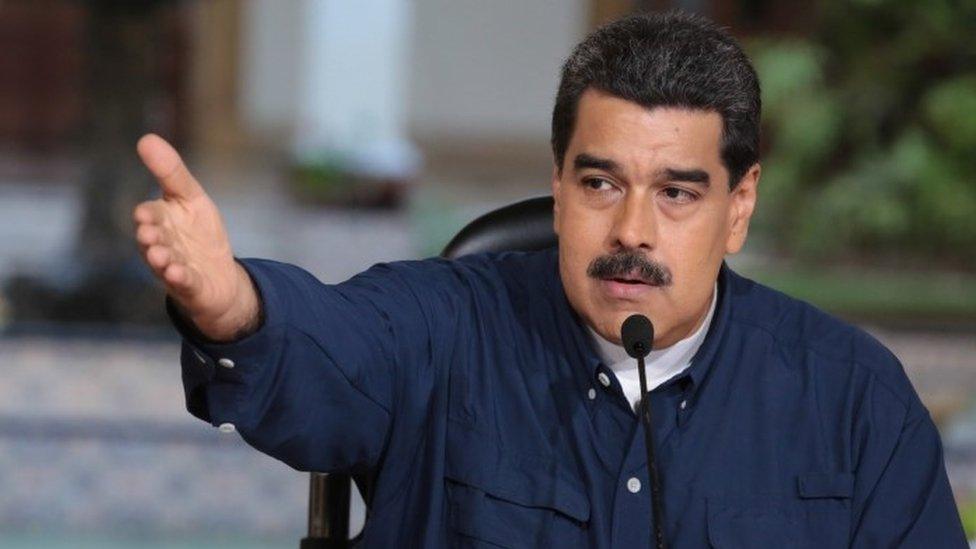
The US has branded President Maduro a "dictator"
Venezuela's President Nicolás Maduro has said that a preliminary analysis shows that new financial sanctions imposed by the United States will lead to a halt in oil exports to the US.
President Trump's order bans trade in Venezuelan debt and blocks its state oil firm from selling bonds in the US.
Mr Maduro went on national television to denounce the US sanctions as an illegal act of aggression.
"Venezuela will never surrender to any imperial power," he said.
Mr Trump's order, signed on Friday, will in effect force the closure of Citgo Petroleum, a US-based subsidiary of the Venezuelan state-owned oil company, PDVSA.
The decision will cost the jobs of American citizens, said Mr Maduro, and affect the investments of US companies.
"We will have no problem selling our oil to other markets," he added.
'Uncivilised politics'
Earlier, Venezuela's Foreign Minister Jorge Arreaza said the US was trying to promote a humanitarian crisis.
Mr Arreaza also said his country was a victim of "fake news" that exaggerated its economic difficulties.
The US accuses Mr Maduro's government of violating human rights and subverting democracy.
Mr Arreaza said that the sanctions and "threats" amounted to "uncivilised politics".
President Maduro would not attend the UN General Assembly in New York next month, he said.
Announcing the new sanctions, the White House said the "Maduro dictatorship" was denying Venezuelans food and medicine.
It said the controversial new constituent assembly - which has voted to take powers from the opposition-led parliament - amounted to a "fundamental break in Venezuela's legitimate constitutional order".
Earlier this month, the US imposed sanctions on President Maduro and some of his closest aides.
Separately on Friday, National Security Adviser HR McMaster said that the US was not planning military action in Venezuela "in the near future".
President Trump had controversially raised that possibility two weeks ago.

Why is Venezuela in crisis?

More than 120 people have been killed in anti-government protests since April
President Nicolás Maduro's popularity fell amid attempts to increase his political powers and a deepening economic crisis
This was compounded by the falling price of oil, which accounts for about 95% of Venezuela's export revenues, and led to cuts to the government's social programmes
Basic necessities, such as medicine and food, are in short supply
The opposition accuses Mr Maduro of mismanaging the economy and eroding democratic institutions
His decision to set up a controversial National Constituent Assembly, which was elected in July, sparked nearly daily protests, with opponents labelling it a slide towards dictatorship

- Published20 April 2017
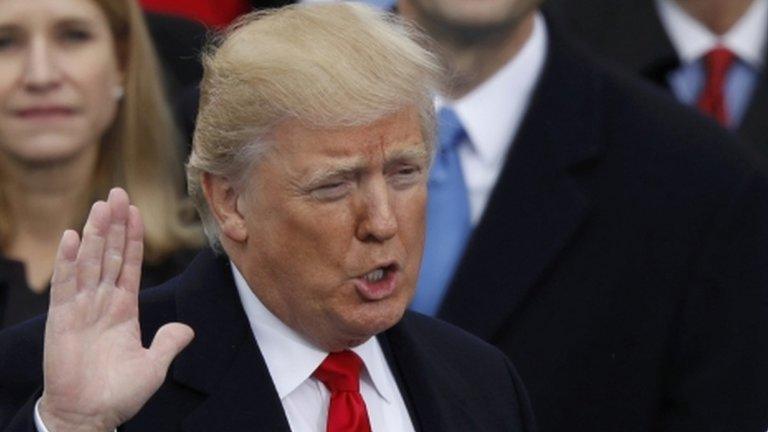
- Published30 May 2017
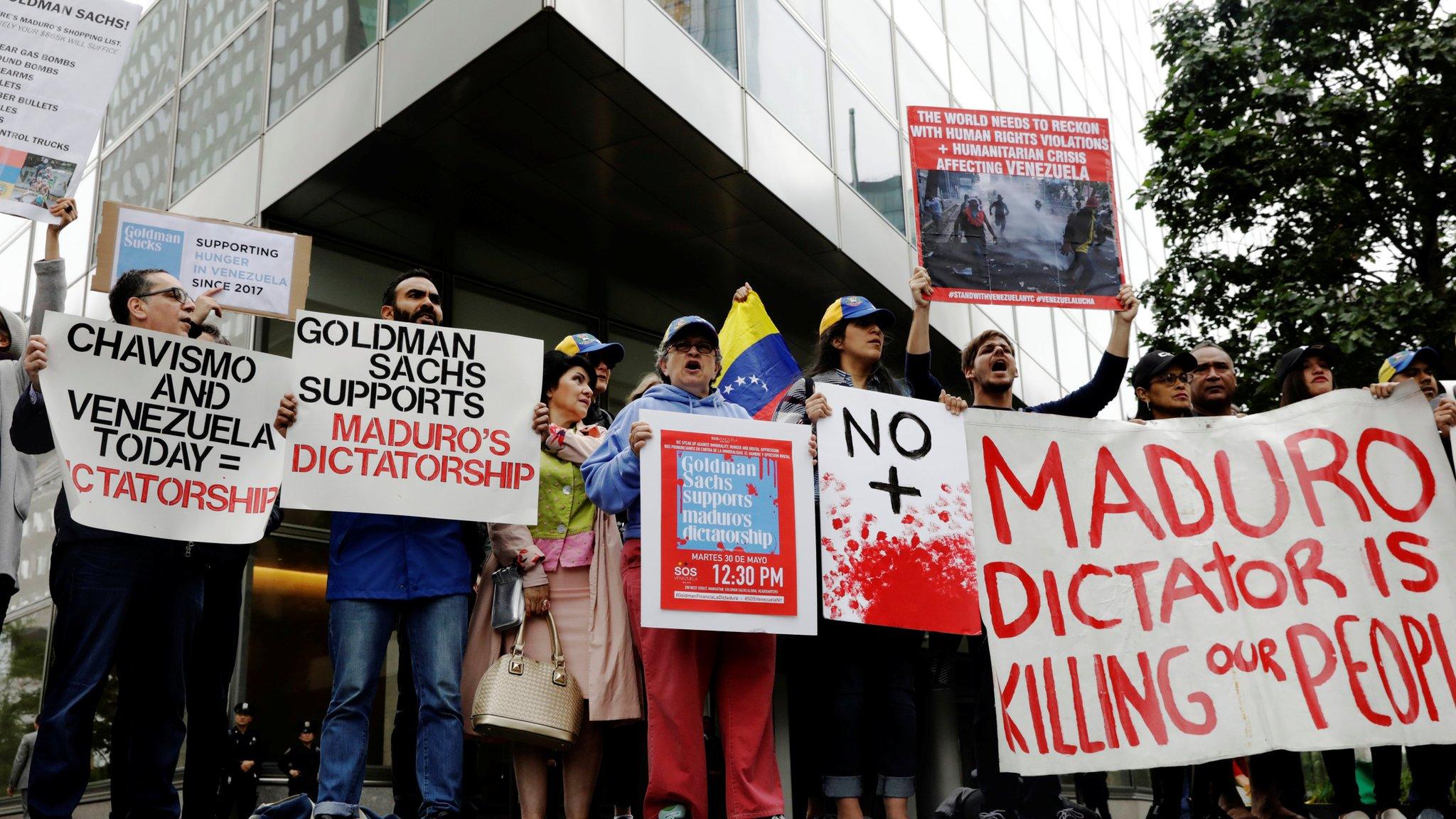
- Published31 July 2017
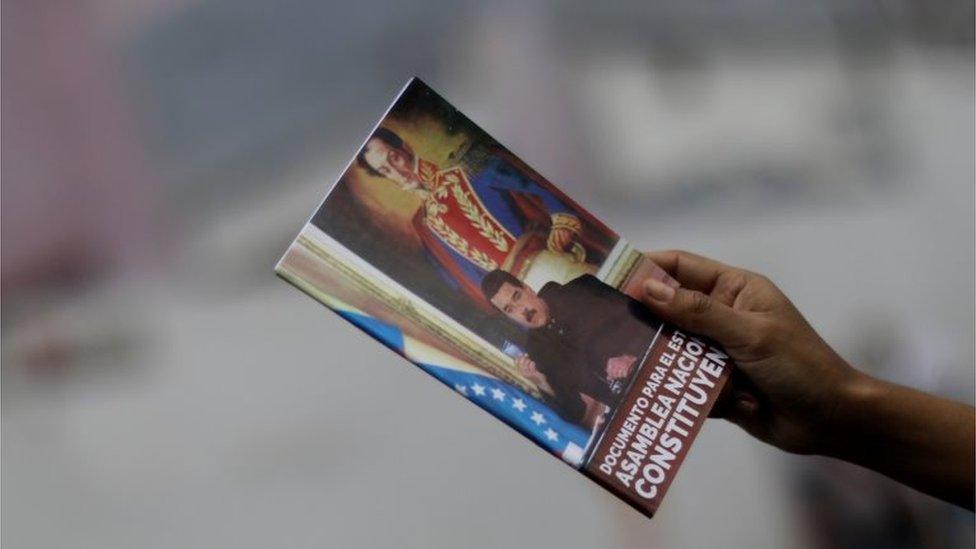
- Published12 August 2021
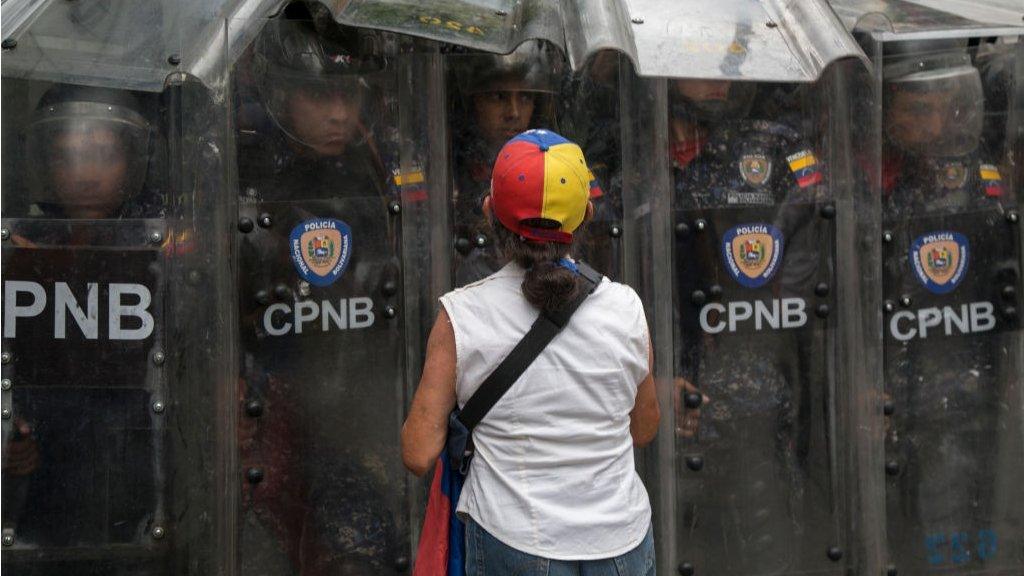
- Published2 August 2017
